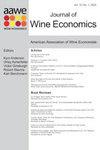对清洁植物中心的公共投资的回报:对经叶卷病病毒检测的葡萄藤的案例研究,以支持具有成本效益的葡萄生产系统
IF 1.5
4区 经济学
Q2 AGRICULTURAL ECONOMICS & POLICY
引用次数: 0
摘要
病毒和相关的移植物传播病原体引起的疾病如果不加以控制,每年会给葡萄产业造成数十亿美元的损失。国家清洁植物网络(NCPN)是一个美国农业部农业法案项目,是一个清洁植物中心组织,生产和维护经过病毒测试的基础葡萄藤,并将其衍生的繁殖材料分发给苗圃和种植者,以尽量减少病毒和病毒样疾病进入葡萄园。基础植物服务(FPS)是ncpn的主要葡萄中心。我们研究了2006年至2019年FPS公共投资的经济影响。通过对葡萄叶卷病的分析,我们发现效益成本比在22:1到96:1之间,商业葡萄园的疾病感染率分别为5%和20%。福利分析表明,与酿酒师和下游葡萄酒供应链系统中的其他参与者相比,葡萄种植者和苗圃从采用清洁种植材料中获得了大部分(64-98%)的利益。这项研究为清洁植物中心的公共投资回报提供了新的见解,并记录了对更高采用来自病毒测试库存的清洁葡萄藤的强烈财政激励,同时证明了公共和私营部门对NCPN中心的持续支持是合理的。本文章由计算机程序翻译,如有差异,请以英文原文为准。
Returns to public investments in clean plant centers: A case study of leafroll virus-tested grapevines in support of cost-effective grape production systems
Abstract Viruses and related graft-transmissible pathogens cause diseases that cost the grape industry billions of dollars annually if left uncontrolled. The National Clean Plant Network (NCPN), a USDA Farm Bill program, is an organization of clean plant centers that produce and maintain virus-tested foundation vine stocks and distribute propagation material derived thereof to nurseries and growers to minimize the introduction of viruses and virus-like diseases into the vineyard. Foundation Plant Services (FPS) is the major NCPN-grapes center. We examined the economic impacts of public investments in FPS from 2006 to 2019. By focusing on grapevine leafroll disease, our analyses revealed a benefit-cost ratio ranging from 22:1 to 96:1, with a 5% and a 20% disease infection rates in commercial vineyards, respectively. A welfare analysis was consistent with grape growers and nurseries capturing most (64–98%) of the benefits from adopting clean planting material compared with winemakers and other actors in the downstream wine supply chain system. This study provided new insights into the returns to public investments in a clean plant center and documented strong financial incentives for higher adoption of clean vines derived from virus-tested stocks, while justifying continued support of NCPN centers from public and private sectors.
求助全文
通过发布文献求助,成功后即可免费获取论文全文。
去求助
来源期刊

Journal of Wine Economics
Agricultural and Biological Sciences-Food Science
CiteScore
3.20
自引率
28.60%
发文量
33
期刊介绍:
The Journal of Wine Economics (JWE), launched in 2006, provides a focused outlet for high-quality, peer-reviewed research on economic topics related to wine. Although wine economics papers have been, and will continue to be, published in leading general and agricultural economics journals, the number of high-quality papers has grown to such an extent that a specialized journal can provide a useful platform for the exchange of ideas and results.
The JWE is open to any area related to the economic aspects of wine, viticulture, and oenology. It covers a wide array of topics, including, but not limited to: production, winery activities, marketing, consumption, as well as macroeconomic and legal topics. The JWE has been published twice a year and contains main papers, short papers, notes and comments, reviews of books, films and wine events, as well as conference announcements. From 2013 on, the JWE has been published three times per year.
The Journal of Wine Economics is fully owned by the American Association of Wine Economists (AAWE) and, since 2012, has been published by Cambridge University Press.
 求助内容:
求助内容: 应助结果提醒方式:
应助结果提醒方式:


